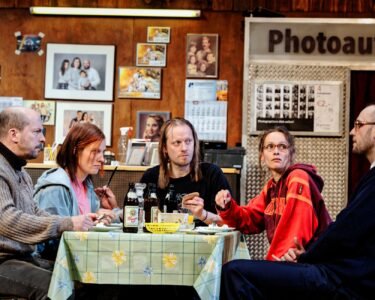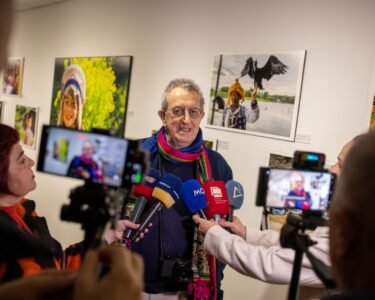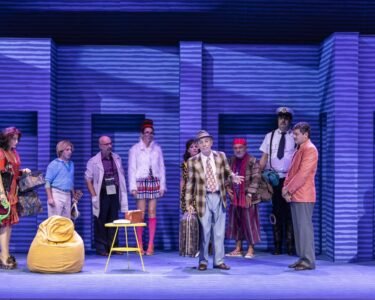Rosalba Panzieri
"Fate brought me back to King Lear, even though I had decided not to do it. Evidently Giorgio Strehler heard and set this trap for me. " With these words Gabriele Lavia, among the greatest masters of theater, commented on His December debut at Teatro Argentina with King Lear, among Shakespeare's most famous and complex plays, written more than four centuries ago, but capable of painful contemporaneity. Gabriele Lavia, who is directing the play, embodies old King Lear, who decides to give his kingdom to his three daughters, demanding the most flattering displays of affection as counterparts. While the two eldest engage in prissy phrases toward their father, the youngest of the daughters, Cordelia, refuses to participate in such verbal contrivances and tells her father that she loves him as much as she is owed as a daughter. Hurt in ego, the king disinherits her, still unaware that Cordelia will be the only daughter to truly love him. He will have to lose his power, and with it his identity, to understand the true nature of his eldest daughters, who, after depriving him of his last possessions, will leave him in a storm. This, as Lavia points out, "is a storm of non-being, which overwhelms him and which Lear will go through to the end, until the last sorrow, when the man Lear, carrying his dead daughter Cordelia in his arms, screaming, will ask the audience, 'Are you men or stones? Had I your throats and your eyes, I would scream and cry till I shattered the vault of heaven. "
Certainly Gabriele Lavia has produced an exemplary show, managing to dose the solidity of craft with the contemporary reality for which the play is intended. Indeed, fifty years have passed since Lavia debuted in King Lear, directed by Giorgio Strehler in1972, and the theater is the current reality have changed, as the maestro points out, "King Lear at a certain point no longer wants to be King and surrenders his being for others to dispose of, but once he is before being he is finished. There is no affection and no strength. Paradoxically, here he encounters the truth of human precariousness, of man being nothing. Thus opens the great monologue, "you unhappy, derelict, last men, wherever you are, wherever you come from ... your clothes all holes and rags how will they be able to defend us from a season like this? ". This vision cannot but refer to contemporary reality, to the multitude of the poor, of migrants, and to all of us who are lashed by the storms of existence. That is why also the choice of the scene fell on the representation of an old abandoned theater, with old trunks from which the actors take out their stage costumes to begin the narrative and revive an agonizing theater. Here again Lavia wanted to perform a ritual action, to remove the dust from the story and show us its strength, to remind us that theater cannot die. Because it has to do with our identity, with our being as Lavia reminds us again, "The theater is an ideal, the place of the gaze where the unveiling of the veiled remains a mystery. It means that theater unveils what remains, still, veiled. Theater cannot die because it needs the actors and the spectators. They may make it more complicated to do. But everything depends on men, and one must always give oneself to it. Give oneself to something to do. "
The tragedy of power, the conflict between fathers and sons, the betrayal of affections, the miseries of human existence, all speak of today, and tomorrow. The entire cast gave a great performance, certainly also thanks to the direction, so much so that it is difficult to trace a preference (with the exception of Andrea Nicolini, who plays the madman), consists of the actors (in o.a.) Giovanni Arezzo, Giuseppe Benvegna, Eleonora Bernazza, Jacopo Carta, Beatrice Ceccherini, Federica Di Martino, Ian Gualdani, Luca Lazzareschi, Mauro Mandolini, Andrea Nicolini, Gianluca Scaccia, Silvia Siravo, Jacopo Venturiero, Lorenzo Volpe.
Sets by Alessandro Camera, costumes Andrea Viotti, lights Giuseppe Filipponio, music Antonio Di Pofi, sound Riccardo Benassi, assistant directors Matteo Tarasco, Enrico Torzillo, assistant stage manager Michela Mantegazza, assistant costumes Giulia Rovetto, prompter Nicolò Ayroldi, stage photos Tommaso Le Pera. A Teatro di Roma - Teatro Nazionale, Effimera srl, LAC Lugano Arte e Cultura production.





